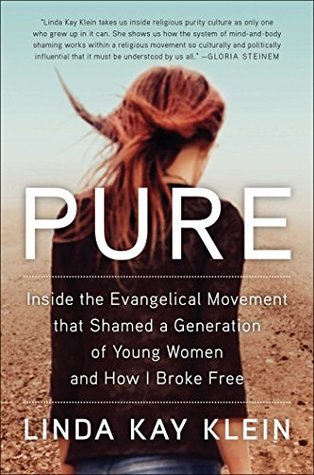In the early 2000s, the professor saw a shift among her students’ autobiographies: a sudden rise in religious sexual and gender-based shame. “The symptoms I’m seeing are exactly the same symptoms I might see in someone who was sexually abused,” she told me in an interview.10 Having grown up in a very sex-positive environment herself, she couldn’t understand why so many students whose sexual autobiographies did not include sexual abuse would be experiencing symptoms traditionally associated with this form of trauma.
Welcome back. Just a moment while we sign you in to your Goodreads account.


